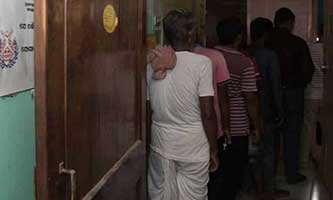
Why ZERO Discrimination is crucial to ending AIDS in India?
“Within a year into my marriage, my husband fell ill and quickly became bedridden. He was diagnosed with HIV and AIDS. My health was normal at that time but in the routine spouse test, I too tested HIV positive. I didn’t know much about HIV except that it is a deadly disease. I was young and terrified. Instead of supporting me, my husband and his family began abusing me. They blamed me for infecting my husband. They started questioning my character. Eventually, they literally kicked me out of the house and I had no choice but to return to my parents”, says Dimple who was rejected by her in-laws for no fault of hers.
Another young mother says, “I was neglected and denied proper care by healthcare workers during the birth of my second child because of my HIV status. It is the deepest pain that I live with that I couldn’t protect my child from getting infected with HIV.”
Discrimination of any form and in any place is a violation of human rights and a barrier to achieving a just and fair society.
What is discrimination? Discrimination is the negative treatment of a person or a group of people on the basis of gender, race, ethnic or national origin, religion, disability, sexual orientation, social class, age, health status, marital status, family responsibilities, etc. The discrimination I see often is driven by stigma––negative beliefs, feelings and attitudes towards people living with HIV or members of the LGBTQI community.
At the age of 13, Venilla knew that she was a woman trapped in a male body. Due to social conditioning, she tried very hard to fit in. However, she couldn’t deceive herself and what she truly felt from within. She eventually fled from home and joined the transgender community in Mumbai. She had to resort to begging and sex work to earn her living. Due to discrimination and stigma, young persons like Venilla are vulnerable to violence, HIV-AIDS, poverty, and overall poor quality of life. Sadly, at the age of 42, Venilla tested HIV positive. Young transgender persons wouldn’t have to suffer such a fate if they were accepted in the society and given equal opportunity to pursue education, employment and reach their full potential.
“We will not achieve our vision for health or realize any of the Sustainable Development Goals if we do not confront discrimination,” said Michel Sidibé, UNAIDS Executive Director.
Three of the world’s most fatal communicable diseases—malaria, HIV and tuberculosis—disproportionately affect the world’s poorest populations like India, and in many cases are compounded and exacerbated by other inequalities and inequities, including gender, age, sexual orientation or gender identity and migration status.
It is the vision of End AIDS India campaign, in alignment with the vision of India, to fast-track commitment of ending AIDS in India while controlling co-infections attached with it such as Tuberculosis, and eliminating discrimination in healthcare settings by 2030. The zero discrimination target goes hand in hand with the commitments to eliminate inequalities of all forms and violence against children, women and girls, people living with HIV and key populations based on discriminatory attitudes.
In 2017, India passed a landmark law that makes it illegal to discriminate against people with HIV/AIDS in terms of healthcare delivery, housing, admission to education, employment, and a range of public services. Commenting on the newly passed law, Rosenara Huidrom of India HIV/AIDS Alliance said, “It is definitely a step towards the right direction as it will secure the rights of people living with HIV, however, this doesn’t ensure the elimination of deeply embedded discriminatory attitude and behaviour of people”.
This Zero Discrimination Day, it will be good to reflect as individuals if we do consciously or unconsciously carry such prejudices and discriminatory attitude within ourselves and course correct them. Every human being is born with equal dignity and value. No cast, race, gender, religion, health status, social status etc. could take that away from a person. It is the most fundamental human rights protected by international treaties and by national laws and constitutions. Let’s pledge to uphold these fundamental human rights as individuals and as a society to give EVERYONE an EQUAL chance to thrive in a just and fair society.
Written by: Tara Rana/End AIDS India
______________________________________
Ref:
http://www.unesco.org/new/en/social-and-human-sciences/ themes/international-migration/glossary/discrimination/
http://www.who.int/mediacentre/factsheets/fs323/en/.
Recent Blog
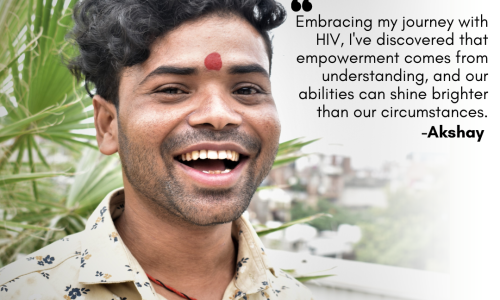
Empowering Lives Overcoming HIV Misinformation with Determination and Hope:
At 22 years old, Akshay firmly believes that life revolves around the lessons you acquire and the abilities
Read More...
22 Aug 2023
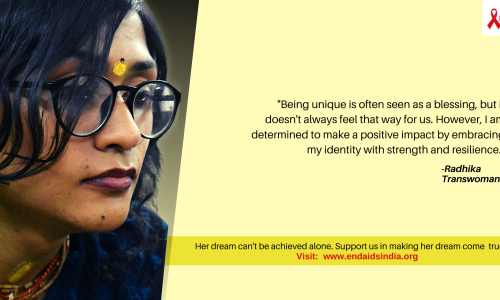
Building an Inclusive World: Empowering the Trans Community Together:
Hi, I am Radhika. I face many challenges as a Trans woman when it comes to finding my
Read More...
20 Jul 2023
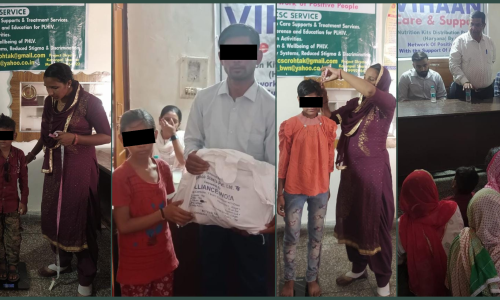
Empowering Young Warriors: Nutrition Kits for Children Living with HIV:
We're thrilled to share the success of our recent nutrition kit distribution to children living with HIV (CLHIV)
Read More...
12 Jul 2023
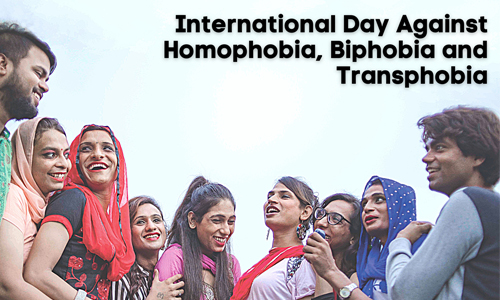
The Struggle of Embracing Identity International Day Against Homophobia Transphobia and Biphobia:
"I've never had an interest in fading into the background and becoming invisible. Let's start with this powerful
Read More...
17 May 2023
